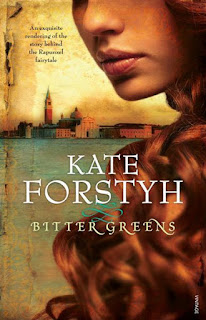 |
| Prize-winning writer, Elizabeth Strout |
The "boys" - Jim and Bob Burgess - are both lawyers, living in Manhattan, but practising law and living life very differently one from the other. Jim is harsh, cynical, relentlessly even tiresomely ambitious. Bob is a legal aid lawyer, lonely, self-defeating, perhaps adoring of his brother, perhaps not. Back home in Shirley Falls, Maine, their sister Susan struggles with being a single mother and more endemic feelings of being left behind. Susan's son Zach is an unconfident, fairly aimless boy who nevertheless does something stark and frightful that has tremendous consequences. Without much thought, and certainly without any real recognition of the seriousness of his insult, Zach throws a pig's head into the makeshift mosque that serves the Somalis who have sought refuge in his quiet home town.
This is the second of two cataclysmic changes that drive this novel. The first happened decades before when one of the Burgess boys (but which one?) released the handbrake on the car in which all the children were sitting. The car ran down a driveway. Their father was killed instantly.
Strout's writing - Strout's thinking - is brilliant in many ways. In life, she shows, things happen. And some of the things that have most consequence happen "instantly" - hurtling us into a future that is often very different from our dreams or planning. The inner and outer narratives of each of these "boys", their partners and families, and of Susan and Zach, are all utterly absorbing, both in their individuality and in their relationships - always shifting - to one another. What is also fascinating, and is shown with consummate skill, is the very different relationship between "life" in Manhattan and the far more "backwater" life in Maine - both as it is conceived and actually lived. The flaws of both are evident, but so is the stimulation, the richness of community. Jim is a particularly "difficult" character yet Strout likes him at least as much as she does the others and wants us to care. We do.
But what makes this an even more exceptional novel, and adds to its value as a keen commentary on contemporary life, is Strout's subtle evocation of the lives of some of those who have left (with anguish and reluctance) their Somali homes, fleeing war, drought, starvation, and are now living in small-town Maine.
 |
| A Somali boy, not "just" a refugee |
I have read that Strout took many years to complete this novel. That doesn't surprise me. There's a quiet control and a rare depth of psychological insight here that belie the "messiness" of her characters' lives (and of life). There is also a very welcome capacity in this wise writer to step way beyond any neat conclusions or stereotyped thinking, especially in relation to the internal or external upheavals that cause people to leave their homes - whether Shirley Falls or a Somali village - that caused Zach to do this desperately stupid and unkind thing, and that cause the people of Shirley Falls (so recognizable in their variety) to welcome - or not - the "strangers in their midst". These are big, profound concerns in 21st-century life, where millions are on the move, not always voluntarily. This is a novel that does justice to its brave themes. I hope you will read it with all the pleasure that I did.
*
To purchase The Burgess Boys, or any book we are recommending or you are seeking, visit our bookstore links (above right). The small % returned to us supports the Universal Heart Book Club. As do your visits and engagement! This is a book club as well as a book journal and we treasure your comments and responses. You can easily post your comments below. If you don't have a Google email, just use "Anonymous" (and do put your name in the text box if you would like to). Follow the “captcha” instructions noting that it’s always two "words" with a space between. This will save us from spammers. Should be easy!













